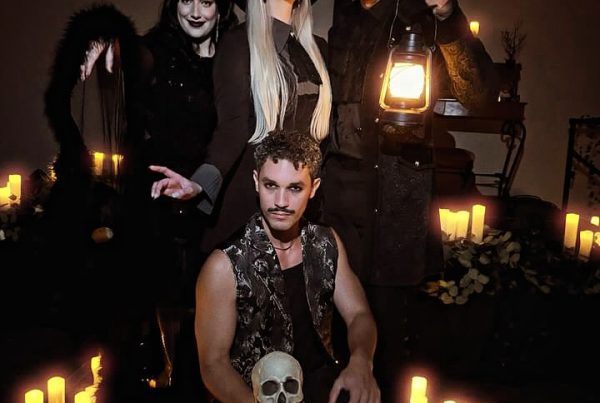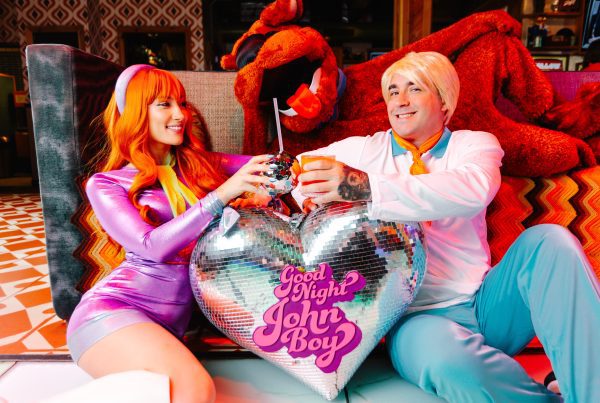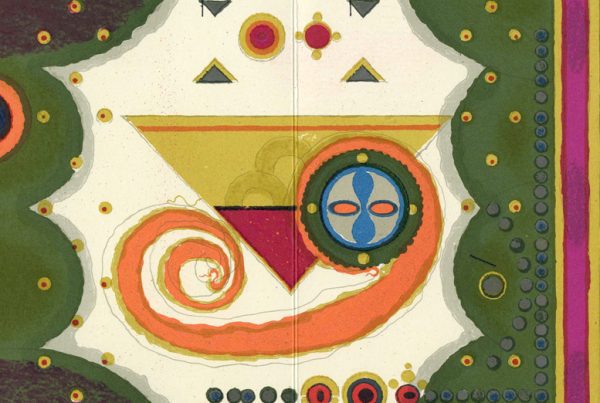When a violent crime is committed, it takes a team of specialized individuals with strong constitutions to investigate the scene, document the findings, analyze the results and, finally, return the crime scene back to “normal.” In this feature from our May 2020 print issue, four Floridians share how they do it.
Earl Shook
It’s safe to say that few of Earl Shook’s clients are happy to see him. As the owner of a Margate franchise of Steri-Clean, a national biohazard removal company, Shook is the final link in the crime scene chain. After homicide detectives and forensic analysts have done their jobs—and after the bodies have been bagged—Shook and his colleagues are summoned by grieving families to scrub out the remnants of death.
Shook (pictured right, crouching) opened the business, which services Palm Beach County to south Broward, in 2018 after retiring from a career in law enforcement. In addition to decomposition cases, he also handles cases of extreme hoarding, rodent infestations, and pretty much any unsanitary condition in a home or vehicle. On the job, he wears standard-issue PPE (personal protective equipment) and a full-face respirator. He deploys an ozone machine to kill noxious odors, and because certain jobs involve penetrating the foundations of a house, his tools include all manner of bolt cutters, sledgehammers and chippers. He travels in an unmarked white van, so as not to draw attention from neighbors.
“We try to be as discrete as possible, so nobody knows what has gone on,” Shook says. “We try to make it as normal as it can be.”
ON SHOOK’S TRANSITION FROM LAW ENFORCEMENT INTO BIOHAZARD REMOVAL
[Before] I retired from law enforcement, I was on a call, and it was a very horrific scene where a person stabbed this businessman 30-something times, and then they tried to clean it up afterward, to cover up the crime scene. In the back of my mind, I was like, how is a family member going to walk into that, and deal with that? Once I retired, I ended up inquiring about the industry, and I came across the founder of our company, who was a firefighter and had the same experiences. So we connected, and I ended up buying into the franchise.ON “PEELING THE ONION”
We had a decomposition where … someone died on a mattress. When you pull back the onion, it’s just layers and layers. You have to keep going as deep as you can. … to the floor, where it leaked through the mattress. We had to cut out the bed frame, and take out the springs from the mattress. We cut up the plywood, the flooring, searching for additional biohazard waste material. And then underneath was some insulation, so we had to take up the insulation. Then we thought we had it, but we ended up taking the air duct out. It’s very deceiving; a lot of times, people will call and ask, “How much is it going to cost?” You can’t give them a price, because you don’t know what you’re going to get yourself into until you start the job.
“I LOOK AT IT AS, I’M PROVIDING A SERVICE FOR SOMEBODY, AND I’M HELPING SOMEBODY. I TRY TO DISCONNECT THE FACT THAT IT’S BLOOD THAT YOU’RE CLEANING UP. BUT YOU’RE NOT HAVING TO LOOK AT A BODY WITH THEIR EYES OPEN, LOOKING AT YOU. IT’S A LOT MORE TRAUMATIC WHEN YOU SEE THE BODY WITH HOLES OR CUT MARKS.”
ON A CASE HE CAN’T FORGET
One of them was a suicide, where somebody jumped off the 16th floor of a building. They made it across and hit a cabana, and their leg snapped. It was such a large area that it impacted.
They’re all unique in their own way. They all have their own story, on why, or how, or if it was a relationship issue, a person who lost their job, their loved one. Sometimes you don’t learn about it; other times families will open up. We never ask what happened. We just go in and do our job.
ON DEALING WITH GRIEVING FAMILIES
I went on a job where a son committed suicide in front of his mom and stepdad. We comforted [the mom]; she cried on our shoulder. And you have to be there to listen. You can’t say anything or do anything to help them; just let them get it off their chest. My son was there helping me, and she gave me a hug and said, “Be thankful for every day, and tell your son that you love him every day, because you don’t know when it’s the last day.”
For the rest of our Crime Scene Heroes feature, click here.
This story is from the May/June 2020 issue of Boca magazine. For more content like this, subscribe to the magazine.







